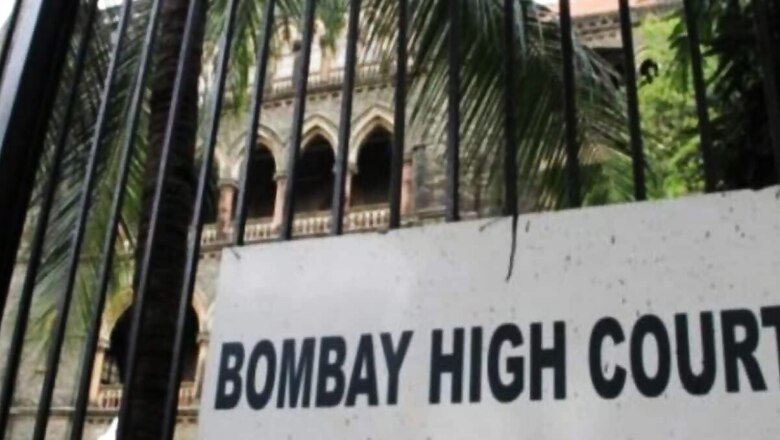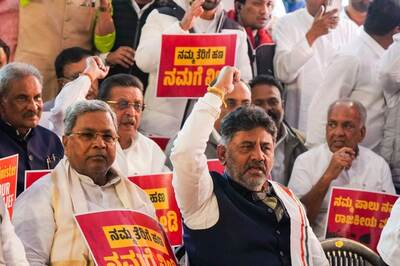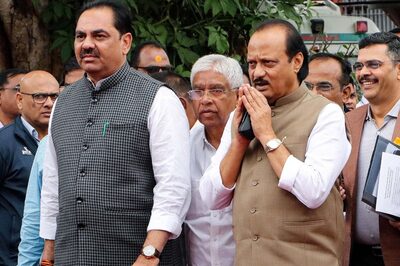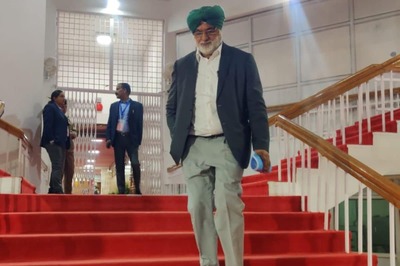
views
The Bombay High Court last week held that even after divorce, a Muslim woman can seek maintenance and protection under the Protection of Women from Domestic Violence Act, 2005 (DV Act).
A single-judge bench of Justice GA Sanap observed that even if it is assumed for the sake of argument that the husband (herein non-applicant as per the present court) had given divorce (talaq) to the wife (applicant), she cannot be denied maintenance in the proceedings initiated under section 12 of the DV Act.
The court was hearing a criminal revision application filed by the husband against the order dated November 17, 2021, passed by Sessions Judge Akola, dismissing the appeal filed by him and allowed the criminal appeal filed by his wife, enhanced the amount of maintenance quantified by the magistrate, and awarded it at the rate of Rs 16,000 per month to the non-applicant/wife and Rs 2,500 to the minor son from March 01, 2014.
They got married on January 7, 2001, and had three children. They both went to Saudi Arabia in 2006 and cohabited. According to the wife, during the initial days, there was a dispute between her relatives and her in-laws as they were residing in the same building at Akola. She said that her spouse mistreated her as a result of the dispute. Finally, in 2012, she returned to India with her husband and their children and stayed at her husband’s home.
She alleged that she was pushed to file a complaint against her relatives and that when she refused, she was abused and her in-laws attempted to murder her. She took her younger son to her parents’ house and filed a complaint against her husband and his relatives. Her husband had returned to Saudi Arabia. She claimed that he made no provision for maintenance and filed a claim for maintenance, shared household, and compensation.
Her husband rejected the accusations stated in the application. He claimed that she used to argue with him, and when she left the house he tried all he could to bring her back. He said that when all of his attempts failed, he gave talaq to his wife, which was duly communicated to her with the help of a registered post.
The magistrate granted the wife maintenance of Rs 7,500 per month and Rs 2,500 per month for their son. The magistrate also ordered a monthly rent of Rs 2,000. In addition, the magistrate granted the complainant Rs 50,000 in compensation.
The sessions court had enhanced the maintenance to Rs 16,000 per month. After this, the husband filed the present petition.
The advocate appearing for the husband contended that the wife left the house of her own will and took shelter in the house of her father. He also stated that on the date of filing of the application, there was no domestic relationship between the parties.
Further, the advocate submitted that the wife being a Muslim woman is not entitled to get maintenance from her husband under section 4 and section 5 of the Muslim Women (Protection of Rights On Divorce) Act, 1986.
The advocate representing the wife stated that she had proved that she was subjected to domestic violence. It was also submitted that even if it is held that her husband had given talaq, she would be entitled to seek relief under section 12 of the DV Act with respect to past domestic violence.
Lastly, it was argued that a Muslim woman even after divorce is entitled to get maintenance from her husband following the iddat period, as long as she does not remarry.
The court after hearing both parties noted that on reviewing the evidence, both the magistrate and the sessions judge concluded that the complainant was subjected to domestic violence by her spouse.
Justice Sanap relied on the case of Shabana Bano v Imran Khan, in which the Supreme Court ruled that a divorced Muslim woman is entitled to maintenance as long as she does not remarry because section 125 of the CrPC is a beneficent statute that must benefit divorced Muslim women.
The court followed the same reasoning and observed that even though the husband gave talaq, the woman cannot be denied maintenance in proceedings under section 12 of the DV Act. The HC reaffirmed that a subsequent divorce decision will neither relieve the husband’s culpability for domestic abuse nor deny the aggrieved person the benefit.
The court highlighted that the husband suppressed his actual income but admitted in cross-examination that he has been a chemical engineer in Saudi Arabia since 2005, with 14 years of experience. According to the HC, his monthly income is around 20,000 riyals plus bonuses, which amounts to approximately Rs 3,50,000.
“The wife is entitled to preserve the lifestyle and standard of living she was accustomed to while living with her husband, according to the court. The husband cannot question the wife on this matter,” the judge added.
Lastly, the HC noted that the enhanced maintenance awarded by the sessions court would meet her bare necessities.
Accordingly, it dismissed the criminal revision filed by the husband.




















Comments
0 comment